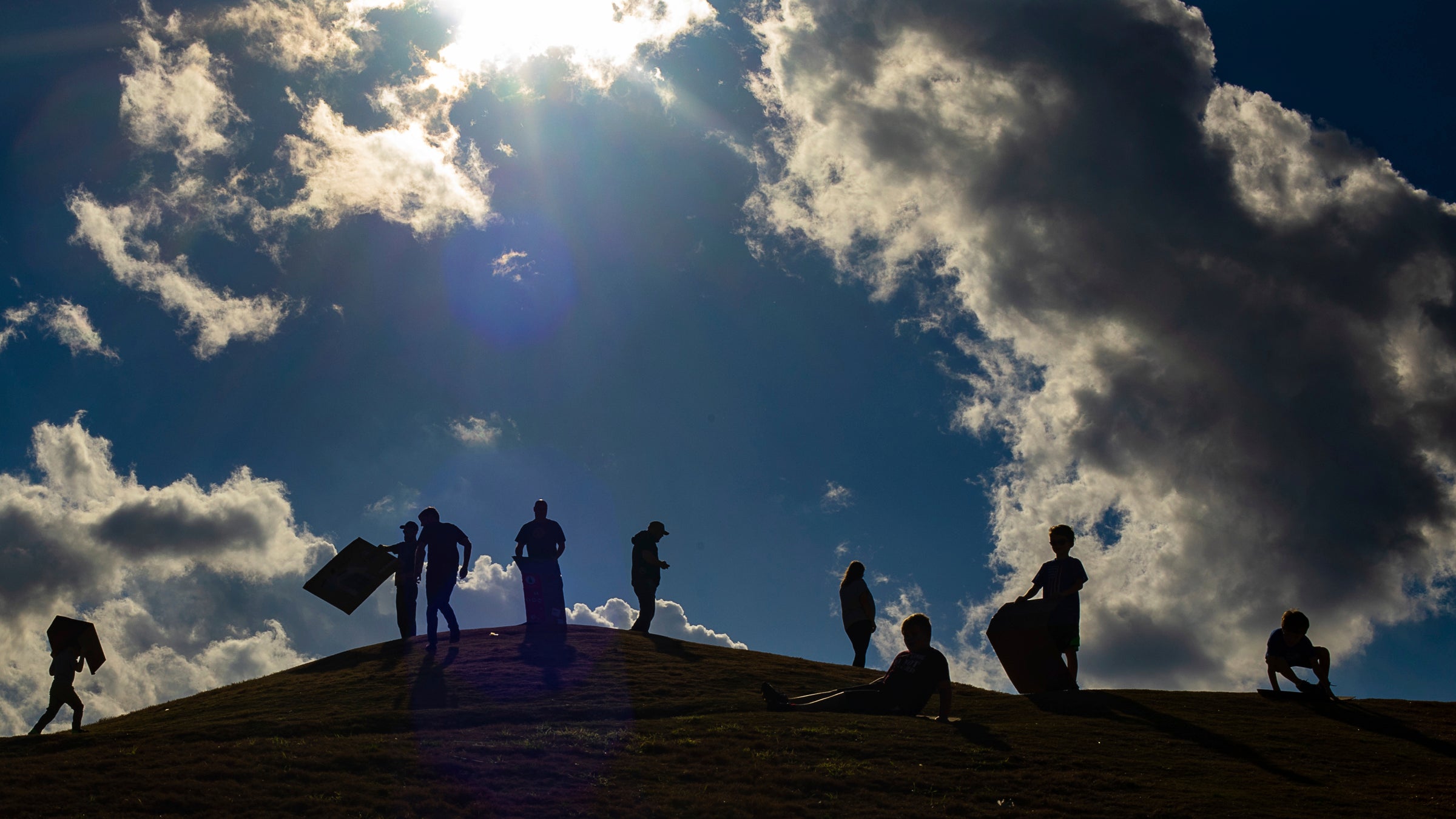Snow blasts California and freezes Pacific Northwest
Blowing snow in mountains of Northern California and Nevada closed key highways over the weekend, while an arctic blast brought frigid temperatures to the Pacific Northwest, and unusually warm weather settled over parts of Texas and the Southeast

Your support helps us to tell the story
From reproductive rights to climate change to Big Tech, The Independent is on the ground when the story is developing. Whether it's investigating the financials of Elon Musk's pro-Trump PAC or producing our latest documentary, 'The A Word', which shines a light on the American women fighting for reproductive rights, we know how important it is to parse out the facts from the messaging.
At such a critical moment in US history, we need reporters on the ground. Your donation allows us to keep sending journalists to speak to both sides of the story.
The Independent is trusted by Americans across the entire political spectrum. And unlike many other quality news outlets, we choose not to lock Americans out of our reporting and analysis with paywalls. We believe quality journalism should be available to everyone, paid for by those who can afford it.
Your support makes all the difference.Blowing snow in mountains of Northern California and Nevada closed key highways over the weekend, while an arctic blast brought frigid temperatures to the Pacific Northwest and unusually warm weather settled over parts of Texas and the Southeast.
At Donner Pass in the Sierra, officials with the University of California, Berkeley’s Central Sierra Snow Laboratory on Monday said recent snowfall has smashed the snowiest December record of 179 inches (4.6 meters), set in 1970. The record is now 193.7 inches (4.9 meters) as more snow is expected.
The Northstar California Resort in Truckee closed its mountain operations on Monday amid blizzard conditions. The ski resort has received more than 6 feet (1.8 meters) of snow over the last 48 hours, according to the resort's Facebook post.
Search and rescue crews are looking for a missing skier who was last seen Saturday morning on a lift at the ski resort, KCRA reported.
The snowpack in the Sierra was at dangerously low levels after recent weeks of dry weather but the state Department of Water Resources reported on Monday that the snowpack was between 145% and 161% of normal across the range with more snow expected.
In the Pacific Northwest, emergency warming shelters were opened throughout western Washington and Oregon as temperatures plunged into the teens and forecasters said an arctic blast would last for several days. Sunday’s snow showers blew into the Pacific Northwest from the Gulf of Alaska, dumping up to 6 inches (15 centimeters) across the Seattle area.
More than a foot (0.3 meters) was reported near Port Angeles across the Puget Sound on the Olympic Peninsula. Portland, Oregon, also received snowfall. Frigid temperatures in the region could tie or break records in the coming days.
In Nevada, freezing air and blinding snow blasted across the northern part of the state on Monday, affecting travel and business, closing Sierra Nevada highway passes, delaying airport flights and shutting state offices.
Interstate 80 remained closed due to poor visibility and heavy snow from the Nevada state line to Placer County, California.
Several flights were canceled or delayed at Reno-Tahoe International Airport and at Harry Reid International Airport in Las Vegas, where skies were clear but nearby mountains were capped by snow.
Nevada Gov. Steve Sisolak ordered nonessential state workers other than public safety and corrections personnel to remain home due to the storm.
Weather and travel advisories stretched to northeast Nevada and Elko due to the possibility of blowing and drifting snow.
Temperatures were unseasonably warm in parts of the Southern Plains, including in Arkansas, where several cities broke records on Christmas Day for daily high temperatures.
But forecasters warned that severe storms were possible midweek when a storm system moves through the Deep South, with Alabama and Mississippi at greatest risk for bad weather, according to the Storm Prediction Center in Norman, Oklahoma.